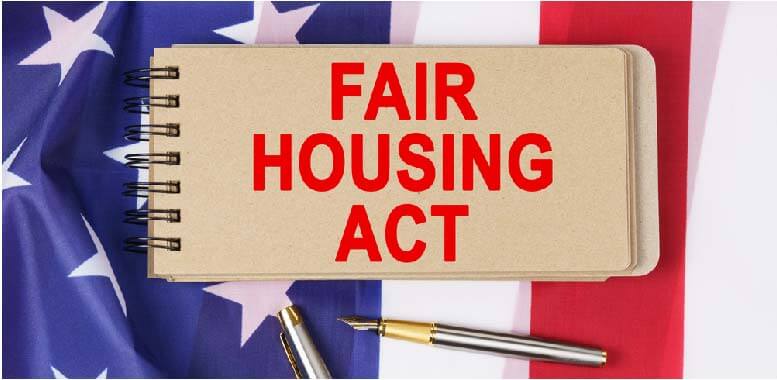Fair housing is a cornerstone of equitable community living, and Homeowners Associations (HOAs) have a crucial role in upholding these principles. Understanding the responsibilities under fair housing laws helps HOAs prevent discrimination and support inclusivity within their communities. These responsibilities stem from federal legislation, such as the Fair Housing Act, along with various state laws that address specific local issues, ensuring that all residents, including those in protected classes, experience fair and equal treatment.
As community living evolves, HOAs must stay informed about reasonable accommodations and modifications for residents with disabilities. This article explores the essential fair housing responsibilities for HOAs, covering best practices, the legal landscape, and the consequences of non-compliance to foster a more inclusive and equitable housing environment.
Overview of Fair Housing Laws
The Fair Housing Act (FHA), a cornerstone in the U.S. civil rights legislation, was promulgated to ensure the provision of housing is fair and free from discrimination. Enacted in 1968 as part of the broader Civil Rights Act, it represents a national commitment to eliminate housing discrimination and promote residential integration. Under this act, it is illegal for housing providers, including homeowners associations (HOAs) and condominium associations, to discriminate against individuals on the basis of race, color, religion, sex, national origin, familial status, or disability.
Given the importance of creating inclusive communities, the FHA also extends its protections to families with children, identifying discrimination based on familial status as a prohibited practice. In addition, through subsequent amendments, the FHA has further supported people with disabilities by offering protections that include the right to reasonable modifications in their living spaces. Such modifications could be essential features like grab bars or alterations to the primary entrance to accommodate disabled residents. It is imperative for HOAs and other housing organizations to understand these laws and consistently review their policies and practices to avoid unintentional or overt discrimination, ensuring housing remains available to all qualified individuals.
Federal Fair Housing Act
The federal Fair Housing Act is the primary legislation governing discrimination in housing across the United States. It outlines the broad strokes of what constitutes illegal discrimination by housing providers, ensuring that fundamental rights to fair housing are upheld. Homeowners associations must heed the letter of this law, as they are included in its provisions. Non-compliance could lead to serious legal consequences.
Initially, the FHA targeted discrimination based on race, color, religion, and national origin. The pivotal Fair Housing Amendments Act of 1988 extended these protections to include familial status and disability, thus responding to the evolving recognition of civil rights in America. This means that HOAs are not allowed to apply rules or restrictions that would disadvantage families with children or individuals with disabilities. The act does not place an undue burden on property owners, but it does require them to make reasonable accommodations to assist residents who fall under these protected classes.
For example, while the Americans with Disabilities Act (ADA) does not typically govern private housing, FHA regulations demand that reasonable modifications be granted without placing an undue financial burden on the association. An HOA, therefore, must allow disabled residents to make necessary changes to their units and the common areas, ensuring equitable access to all features of the community living space.
State Fair Housing Laws
State Fair Housing Laws supplement federal guidelines, offering additional layers of protection to ensure discrimination in housing based on the aforementioned classes doesn’t occur. These laws operate alongside, and at times, extend beyond, the provisions of the Federal Fair Housing Act, with each state having the flexibility to enforce and expand upon these protections.
For example, the Florida Fair Housing Act mirrors the federal law’s commitments, ensuring that its application is felt within state boundaries. While each state’s approach to fair housing might present unique attributes, the unifying theme is a prohibition of discrimination and the promotion of equality in housing opportunities.
In practical terms, state Fair Housing Laws can lead to the development of specific procedures for lodging and dealing with complaints. These procedures are oriented towards providing a methodical way to handle grievances surrounding unlawful discrimination. It is crucial for all housing providers, including homeowners associations and property owners, to be well-versed in both federal and state laws on fair housing, as failure to comply can lead to legal challenges and penalties. HOAs must ensure their rules and regulations align with these laws to prevent making housing unavailable to certain groups and, consequently, avoid allegations of discrimination in housing.
Federal Fair Housing Act
The Federal Fair Housing Act (FHA) is a crucial statute that seeks to prevent discrimination in the provision of housing based on race, color, religion, sex, national origin, familial status, or disability. Homeowners associations (HOAs) and condominium associations must ensure compliance with the FHA to avoid discriminating practices. This includes recognizing the importance of ensuring housing availability to all protected classes and taking careful consideration when enforcing policies that might disproportionately affect certain individuals.
For instance, rules impacting families with children need to be examined in light of the FHA’s protection of familial status to prevent discrimination in housing. Similarly, housing providers, which include HOAs, are mandated to make reasonable modifications for people with disabilities. This could mean allowing the installation of grab bars or ensuring the primary entrance is accessible to disabled residents, without causing undue burden on the association.
It is vital for property owners and associations to understand that while the Americans with Disabilities Act (ADA) may not directly apply to them, the FHA’s guidelines regarding non-discrimination and accessibility for residents with disabilities do. The FHA also includes a specific provision for “Housing for Older Persons,” which allows certain exceptions to familial status discrimination in qualified senior living communities.
State Fair Housing Laws
State Fair Housing laws play a crucial role in guiding community associations, including homeowners and condominium associations, to maintain non-discriminatory practices in accordance with the Federal Fair Housing Act. These laws encompass key protected classes such as race, color, religion, sex, national origin, familial status, and disability. Although specific provisions may differ slightly from state to state, the overarching principles align with federal standards, as exemplified by the Florida Fair Housing Act.
To ensure compliance, many states have established procedures for the resolution of fair housing complaints. These systematic approaches allow grievances concerning discrimination in housing based on the protected classes to be addressed effectively. Associations like HOAs must stay informed of both state and federal fair housing laws to prevent legal issues and uphold the provision of housing without discrimination.
Community associations serve as housing providers, and therefore, have the responsibility to accommodate residents in a non-biased manner. This includes making reasonable modifications for people with disabilities, such as installing grab bars or ensuring access through the primary entrance without imposing an undue burden.
Adhering to these laws fosters a respectful and inclusive community environment, making housing available to all qualified individuals and preventing housing discrimination. Failure to comply can lead to serious legal repercussions and inhibit equal housing opportunities.
Responsibilities of HOAs Under Fair Housing Laws
The Fair Housing Act of 1968 established critical parameters for homeowners associations (HOAs) to prevent discrimination in their housing practices. These associations, which manage communal living spaces and enforce community rules, are regarded as entities covered by the Fair Housing Act and are subject to its regulations. The Act serves to eliminate unlawful housing discrimination across the nation, promoting an inclusive environment where all individuals have equal opportunity to acquire housing without the influence of their race, religion, sex, nationality, familial status, or disability.
The Department of Justice underscores that homeowners associations, alongside property managers and similar stakeholders, must adhere to the Fair Housing Act. Recent changes in regulations from the Department of Housing and Urban Development (HUD), further underscore the importance for HOAs to remain educated and up-to-date regarding compliance responsibilities. The commitment to fair housing practices is a continuous responsibility that includes the acknowledgment of protected classes and the prohibition of discriminatory actions in housing availability, rules enforcement, architectural policy, and accommodation measures.
HOAs bear the onus of ensuring that their governing documents, policies, and practices do not contravene Fair Housing Act provisions. Understanding and implementing these guidelines is not only a legal requirement but a fundamental aspect of community stewardship that guards against discrimination.
Preventing Discrimination
Under the Fair Housing Act (FHA), it is illegal for homeowners associations (HOAs) to engage in discrimination based on an individual’s race, color, national origin, religion, gender, familial status, or disability. To prevent discrimination, HOAs are tasked with maintaining community rules and regulations that do not negatively impact these protected classes. For instance, the FHA stipulates that all decisions made by an HOA, such as architectural changes or community involvement, should not be influenced by any of the discriminatory factors.
HOAs must be particularly cautious to avoid rules or zoning practices that limit housing opportunities for disabled individuals. This includes allowing reasonable modifications such as access ramps or visual alert systems for hearing impaired residents. Ensuring these adjustments do not prove an undue burden to the association is a balancing act that respects both the rights of the disabled residents and the needs of the HOA.
Furthermore, the FHA requires that newly constructed multifamily residences meet certain accessibility standards. This underscores the necessity for community associations to work hand-in-hand with developers to ensure that buildings are accessible and compliant from the start.
Protected Classes
The Fair Housing Act offers a clear and extensive definition of protected classes which encompass:
- Race
- Color
- Religion
- Sex
- National Origin
- Familial Status
- Disability
Protection under familial status not only covers families with children but also extends to potential restrictions in community facilities, such as age limitations on pool access. Additionally, the Act’s provision for disability includes those with significant mental or physical impairments that substantially limit one or more major life activities.
HOAs have a legal duty to ensure their governing documents, rules, and other enforced guidelines do not unjustly discriminate against these classes. Discriminatory practices can be both overt and subtle, but both harm the integrity of the community and violate federal law. Thus, it’s vital for HOAs to train their boards and committees on the nuances of the FHA and actively pursue practices that reinforce fairness and equality within the community.
Reasonable Accommodations and Modifications
The Fair Housing Act (FHA) holds the principle that housing should be available to all, without discrimination. Central to achieving this aim is the requirement for housing providers, such as homeowners associations (HOAs) and condominium associations, to make reasonable accommodations and modifications that facilitate fair housing, particularly for people with disabilities. Reasonable modifications typically involve physical alterations to properties, such as the installation of a ramp or accessible bathroom features, to ensure full use and enjoyment of the dwelling.
Residents with disabilities have the right under the FHA to request these essential changes in their living spaces and the common elements of the community. HOAs are legally required to permit such modifications, provided they do not result in undue financial or administrative burdens or fundamentally alter the housing or services provided. The cost is characteristically the responsibility of the resident requesting the modification; however, if the community facilities fall under the remit of public accommodation as defined by the Americans with Disabilities Act (ADA), then the cost must be shouldered by the association.
Discrimination against people with disabilities includes the denial of reasonable modifications that can otherwise facilitate their equal use and enjoyment of a residence. Thus, HOAs must ensure that their policies and procedures are crafted and implemented in ways that align with the FHA’s stipulations and honor the rights of disabled residents to fair and accessible living conditions.
Understanding Reasonable Accommodations
The FHA’s requirement for reasonable accommodations is designed to afford persons with disabilities equal opportunities to live comfortably in their residences, setting the expectation for housing providers to adjust rules, policies, practices, or services accordingly. Examples of reasonable accommodations might include permitting assistance animals in otherwise pet-free environments or providing a closer parking space to a resident with mobility issues.
When a request for an accommodation is made, HOAs must assess the necessity on an individual basis. An accommodation is considered reasonable if it does not cause undue burden—financial or administrative—or change the fundamental nature of the housing provided. To avoid discrimination claims and comply with the FHA, it’s essential for HOAs to have clear, fair, and consistently applied policies regarding how they handle such requests.
Examples of Modifications for Residents with Disabilities
For residents with disabilities, modifications can make the difference between a space that is livable and one that truly feels like home. Accommodations can include the installation of wheelchair ramps, guard rails, and handicap-accessible parking spaces. Within the community areas, lift chairs for pools or accessible bathroom arrangements can be vital.
Interior modifications, while perhaps less visible, are no less significant. They might involve adjusting the width of doorways or installing grab bars in bathrooms to help ensure safety and ease of movement. Where these modifications affect the overall structure or require significant alterations, they represent an important provision for enabling the full enjoyment of the property for disabled residents.
With the ADA providing additional guidelines, if the property is classified as offering public accommodation, HOAs might be required to absorb the costs for necessary modifications. Exterior alterations such as ramps or modified walkways, often necessary for access to common or public spaces, would present a typical case where the association might bear the financial responsibility for changes.
Through these provisions, the FHA continues to fulfill its purpose of preventing discrimination in housing and facilitating a living environment that is accessible and inclusive for all, ensuring that property owners and housing providers take both ethical and legal responsibilities to support this equality.
Guidelines for HOA Rules and Policies
The Fair Housing Act (FHA) is a significant law that impacts the actions and policies of Homeowners Associations (HOAs) across the United States. It is critical for HOAs to adhere to these legal guidelines, with special attention paid to ensuring that housing decisions are not made based on race, color, religion, sex, national origin, familial status, or disability. To comply with the FHA, HOAs must review and possibly revise their governing documents to eliminate any discriminatory language or terms, particularly when it comes to the use of community facilities and rules.
Requests from residents with disabilities for reasonable accommodations must be acknowledged adequately. HOAs are legally required to fulfill such requests unless doing so would result in an undue financial or administrative burden. Additionally, an HOA cannot enact or enforce rules that discriminate against families with children under the age of 18, including those that restrict renting or selling properties to such families.
The enforcement of the Fair Housing Act is overseen by the Department of Housing and Urban Development (HUD) and the US Department of Justice. Consequently, HOAs must be diligent in ensuring their compliance with all applicable regulations. This includes providing necessary training for board members and revisiting policies routinely for any implicit biases or discriminatory impacts that could be in violation of the FHA.
Avoiding Discriminatory Rules
Homeowners Associations must scrutinize their rules and policies to make sure they are in alignment with the Fair Housing Act. This responsibility goes beyond merely avoiding explicit discrimination. HOA documents must be free from terms that could result in unfair treatment based on protected characteristics. All aspects related to the provision of housing—including sale, rental, and use of community facilities—are covered by the FHA, which prohibits discrimination in housing based on race, color, national origin, religion, sex, familial status, or disability.
The community rules established by an HOA should not inadvertently restrict the necessary modifications for people with disabilities, such as prohibiting wheelchair ramps or other reasonable modifications. HOA board members play a crucial role in implementing these rules, tasked with the responsibility to make unbiased housing decisions and to remain alert to subtler forms of discrimination.
Crucially, to be compliant with the FHA, HOAs must provide reasonable accommodations for individuals with disabilities. This not only encompasses physical modifications to properties but also fair access to housing and community facilities, ensuring that disabled residents are treated equitably.
Impact of Policies on Children
HOA policies that specifically target children or families with children can be viewed as discriminatory under the Fair Housing Act and thus, can subject the association to legal action. To maintain adherence to anti-discrimination laws, associations are advised to use neutral language in their rules and policies that doesn’t differentiate based on age.
Instead of drafting rules that single out children, policy language should focus on the behavior or actions being regulated, applicable to all residents. Any safety measures that could be perceived as limiting to children need to be evaluated to ensure they do not communicate that children are not welcome.
HOAs must be mindful that discrimination based on familial status, such as rules that place special requirements or conditions on tenancy for families with children under 18, is illegal. Efforts should be made to revise any policies that could be interpreted as discriminatory based on age. Associations should place emphasis on creating an inclusive community for all residents, encompassing fair treatment for families and children.
Filing Complaints for Housing Discrimination
If a homeowner or resident believes they have been discriminated against by their homeowners association (HOA) or condominium association under the Fair Housing Act, they have the right to file a complaint. The U.S. Department of Housing and Urban Development (HUD) is the federal agency responsible for addressing such issues, and complaints can be submitted through various channels. An individual may contact HUD via a toll-free phone number, file a complaint online, or send it through mail. Due to the intricacies involved with discrimination in housing based on familial status, disability, or other protected classes, it is advisable to consult with an experienced community association attorney who can provide legal guidance specific to fair housing regulations.
The Fair Housing Act guarantees the right to file complaints against housing providers, including HOAs, when residents face discrimination. HUD can refer the complaint to state or local public agencies if they have a certification recognized as substantially equivalent to the agency’s standards. These agencies, certified as substantially equivalent, handle such complaints as well and may include entities like the Colorado Civil Rights Division. The respondent of the complaint has to be informed within 10 days of the filing, and subsequently, they have 10 days to provide their response to the allegations. It’s important to note that there are financial penalties associated with Fair Housing Act violations. Civil penalties may start at $19,787 for a first violation, escalating with subsequent offenses. In addition, violators may be required to pay the prevailing party’s attorney fees.
The process of filing a complaint is a step toward safeguarding the rights of individuals and ensuring fair access to housing without undue burden or discrimination. It’s a mechanism to ensure that discriminatory practices are identified, addressed, and rectified.
How to File a Complaint
To initiate a fair housing complaint, individuals who suspect discrimination can file directly with HUD’s Office of Fair Housing and Equal Opportunity (FHEO). Alternatively, in certain areas like Colorado, residents can file with the Colorado Civil Rights Division, which has been deemed as substantially equivalent to HUD. The route chosen may depend on the location and specific circumstances of the alleged discrimination.
The HUD website provides an online complaint form, which can be completed and submitted electronically, ensuring a convenient and efficient process for those seeking to report discrimination in housing. Additionally, HUD’s toll-free phone number is available for individuals who prefer to articulate their concerns verbally. For those who favor traditional methods, complaints can be sent through postal mail, but extra attention to detail and adherence to procedure is critical in ensuring that the documentation is processed.
Filing a complaint through administrative channels like HUD or the Colorado Civil Rights Division is just one avenue available. Individuals also have the option to take their case to federal or state court, bypassing the administrative process if they choose to do so. The decision of where to file could significantly influence the ensuing legal process and resolution of the case.
Timeline and Process of Investigations
Upon the filing of a complaint with state or local agencies such as the Colorado Civil Rights Division, the investigative process follows a strict timeline under the Fair Housing Amendments Act (FHAA). The respondent is promptly notified within 10 days of the complaint being filed, with the opportunity to respond within an additional 10 days thereafter.
Investigations by the Civil Rights Division are typically confined to a 100-day time frame, unless circumstances render this impractical. During this period, administrative efforts are focused on conciliation between the involved parties, with the goal of reaching an agreement that satisfies both the public policy interests and the objectives of fair housing.
At the conclusion of the investigation, a determination is made regarding whether there is probable cause to believe there has been a violation of the FHAA or the Colorado Fair Housing Act. Depending on the findings, this can lead either to the issuance of a charge, further advancing the legal process, or the dismissal of the complaint.
The timeline of the investigative process is designed to ensure a timely and fair resolution for individuals facing alleged discrimination, allowing them to return to their daily lives with the least possible disruption and with their fair housing rights upheld.
Consequences of Non-Compliance
Housing providers, including homeowners associations (HOAs), are legally obliged to adhere to the Fair Housing Act (FHA), which serves to protect individuals from discrimination in the provision of housing. Failure to comply with these laws can have serious repercussions for HOAs. Identifying and addressing non-compliance is critical, as HOAs may be deemed liable for harassment based on protected class membership if they do not investigate and resolve complaints appropriately. This liability extends to situations where an HOA retaliates against individuals filing fair housing complaints, pointing to activities such as threatening fines or assessing legal fees unlawfully.
Moreover, HOAs need to be conscious of rules that could act as subtle forms of discrimination. A classic example is community regulations that unintentionally prevent reasonable modifications necessary for disabled residents, such as the installation of grab bars or wheelchair ramps. These oversights can result in violations of the FHA. Non-compliance also encompasses the failure to offer reasonable accommodations, which could mean not providing exemptions from certain rules that impair the full use and enjoyment of a residence by individuals with disabilities. Encountering such legal issues places the HOA at risk of consequential legal actions that could significantly impact its operation and reputation.
Potential Penalties for HOAs
Non-compliance with the Fair Housing Act can result in severe financial penalties for HOAs. A civil monetary penalty for a single violation may begin at $19,787, with the amount potentially escalating to $98,935 for multiple infractions. These penalties are designed to deter discriminatory practices and encourage compliance with fair housing laws. Additionally, beyond financial penalties, HOAs found in violation of the FHA may also be responsible for covering the attorney’s fees of the aggrieved parties.
Board members of an HOA are not immune from individual liability and can be held personally accountable for discriminatory actions that infringe upon the FHA. The Act strictly prohibits adverse actions based on an individual’s membership in protected classes, such as familial status and disability. Furthermore, an HOA can incur penalties for engaging in retaliatory conduct against individuals who assert their fair housing rights, even if their complaints are later deemed unsubstantiated.
Legal Ramifications
The legal ramifications of non-compliance with the Fair Housing Act extend beyond financial penalties. The Act prohibits discrimination in housing based on a range of characteristics, and HOAs are expected to align their policies and conduct with these legal provisions. Any form of adverse treatment towards a person on the grounds of their protected class status may prompt allegations of unlawful discrimination, potentially triggering legal proceedings against the HOA.
In line with the FHA, retaliation against residents for lodging complaints about discriminatory practices is also forbidden. The Act underscores the importance of not just ethical management but also legal compliance in the conduct of HOA business. It’s crucial to note that amendments to the FHA over the years have broadened the scope of protection, and HOAs need to stay abreast of these changes to avoid legal liabilities. The Act serves as a constant reminder that housing providers must exercise due diligence in ensuring their actions are fair and non-discriminatory towards all residents.
Best Practices for HOA Boards and Community Managers
Homeowners associations (HOAs) and community managers play a critical role in upholding fair housing standards. To avoid financial penalties and ensure ethical management, it is essential that they prioritize understanding and compliance with the Fair Housing Act (FHA). HOA boards must exercise caution when making decisions, carefully considering each one for potential discrimination based on protected classes such as race, religion, or disability.
Reviewing governing documents is necessary to confirm that no discriminatory language exists, and all rules and regulations of the community must be consistently applied to all members to prevent any appearance or occurrence of discriminatory practices. Furthermore, accommodations for residents with disabilities, such as installing wheelchair ramps or grab bars, are not just acts of goodwill but requirements under fair housing provisions, as long as they are reasonable and do not impose an undue burden on the association.
For these reasons, it is a best practice for HOAs to:
- Regularly conduct a comprehensive review of their bylaws and rules to remove any language or policies that may be discriminatory.
- Ensure equal treatment of all residents and prospective residents by applying rules and policies consistently across the community.
- Consider residents’ requests for reasonable modifications or accommodations in a timely and empathetic manner.
- Educate and train board members and property managers on their roles and responsibilities under the Fair Housing Act to prevent violations.
Developing Fair Housing Policies
The Fair Housing Act serves as a foundational guideline for HOAs while developing fair housing policies. These policies need to encapsulate non-discriminatory practices that encompass all the Act’s protected categories, including age, race, religion, national origin, gender, disability, and familial status. Clearly written policies and procedures to address requests for reasonable modifications or accommodations are crucial to maintain compliance and to demonstrate the association’s commitment to fair housing principles.
It’s recommended that associations work with attorneys experienced in fair housing laws to draft and review their guidelines. This is particularly important for nuanced issues such as those surrounding service and support animals that could potentially lead to inadvertent discrimination if not properly addressed.
Best practices for policy development include:
- Creating a written process to handle accommodation and modification requests, detailing all the steps from request to implementation.
- Regularly reviewing procedures with legal counsel to ensure alignment with current fair housing laws and regulations.
- Incorporating state fair housing law procedures for resolving complaints of housing discrimination into HOA policies.
Training and Education for Board Members
A crucial aspect of enforcing the Fair Housing Act within an HOA is the proper training and education of its board members. They must have a clear understanding of their obligations under the FHA to avoid unintentional discrimination in decision-making. This training should illuminate not just explicit forms of discrimination, but also subtler ones, and inform members about the consistent application of rules.
Board members should be made aware of various forms of housing discrimination such as quid pro quo harassment and the significant financial penalties associated with FHA violations. Education can serve as both a preventative measure and an assurance that the community is managed in a fair and lawful manner.
Training sessions for board members could cover topics such as:
- Identifying and avoiding the use of discriminatory language in HOA rules and communications.
- Recognizing and preventing subtle forms of discrimination.
- Understanding the legal and financial ramifications of non-compliance with the FHA.
Fostering Inclusive Communities
In line with the Fair Housing Act, HOAs must actively foster an inclusive community by ensuring accessibility, particularly for individuals with disabilities. All new multi-family housing facilities are required to be designed and constructed with accessibility in mind, from the primary entrance to communal spaces.
HOAs should be prepared to accommodate modification requests that promote accessibility. Practices that could be construed as discriminatory, such as refusing necessary alterations for wheelchair ramps, should be strictly avoided. The broader definition of disability according to the Fair Housing Amendments Act indicates a need for community policies that recognize a wide range of physical and mental impairments.
Attributes of fostering inclusive communities include:
- Responding proactively to accessibility requests from residents with recognized handicaps.
- Ensuring screening policies do not inadvertently discriminate against any protected class.
- Promoting diversity and inclusion within the community by recognizing individual needs and accommodating them wherever feasible.
By adopting these practices, HOAs not only comply with the Fair Housing Act but also contribute to creating a harmonious and inclusive living environment for all residents.
Developing Fair Housing Policies
Developing fair housing policies is critical for homeowners associations (HOAs) and condominium associations to ensure compliance with the Fair Housing Act. This federal law protects against discrimination in housing based on factors such as race, color, national origin, religion, sex, disability, and familial status. Associations must be careful not to make housing unavailable or restrict ownership on these bases.
To align with the Fair Housing Act, associations should implement written policies and procedures that address requests for reasonable modifications and accommodations. This is especially important for housing providers when serving people with disabilities, ensuring disabled residents have equal access and enjoyment of their homes.
Modifications could be as simple as installing grab bars in the bathroom or ensuring the primary entrance is accessible.
Associations need to ensure that their rules do not inadvertently discriminate against any protected class. Consulting with attorneys who specialize in fair housing laws is advisable, particularly when crafting policies regarding service and support animals.
Furthermore, state fair housing laws may prescribe additional requirements or procedures for addressing complaints of discrimination, which should be integrated into the association’s fair housing policies. A proactive approach with legal guidance will help avoid unfair practices and potential claims of discrimination in housing based on the protected classes under the Act.
Training and Education for Board Members
Training and education for HOA board members are essential to comprehend and uphold the Fair Housing Act (FHA) obligations, ensuring that no discriminatory decisions are made based on protected characteristics such as race, color, religion, sex, national origin, familial status, or disability. Board members must ensure that community rules are devoid of discriminatory language to avoid FHA violations. With discrimination in housing sometimes occurring subtly, it is crucial that rules and regulations are reviewed meticulously and applied consistently to all members of the community.
Furthermore, training sessions should highlight different forms of harassment, including quid pro quo harassment, where residents may be coerced into enduring unwelcome actions to obtain or preserve their housing services. Understanding the severity of consequences following FHA violations is pivotal; the penalties begin at $19,787 for the first violation, accentuating the gravity of conforming to FHA guidelines. Therefore, thorough training for board members is not only a matter of compliance but also one of financial and reputational prudence for homeowners associations.
Fostering Inclusive Communities
The Fair Housing Act plays a crucial role in fostering inclusive communities within homeowners and condominium associations. As housing providers, HOAs are legally required to adhere to provisions that prevent discrimination on the basis of familial status, disability, or other protected classifications. This includes making reasonable modifications to ensure properties are accessible to people with disabilities.
For instance, disabled residents may request the installation of grab bars or the creation of a primary entrance that accommodates wheelchair access. HOAs must evaluate such requests and may not legally impose an undue burden on property owners looking to make their homes livable in accordance with their needs. The provision of housing that is both inclusive and accessible is not just a legal mandate but also a moral imperative to uphold the rights of all community members.
Nevertheless, there are exceptions, such as the Housing for Older Persons Act, which allows certain communities to limit residency to older individuals, provided they meet specific criteria.
HOAs should also review their membership policies to ensure they are objective and nondiscriminatory, thus preventing the practice of making housing unavailable based on unreasonable and unfair discrimination in housing. Building an inclusive community is about embracing diversity and ensuring equal opportunities for all current and prospective residents.
Conclusion and Summary of Key Responsibilities
In conclusion, Homeowners Associations (HOAs) and condominium associations have a legal obligation to adhere to the Fair Housing Act to prevent discrimination in housing based on race, color, national origin, religion, sex, familial status, or disability. HOAs must enact and enforce policies that allow for reasonable modifications to accommodate disabled residents, without imposing undue burden on the community. They should ensure that provisions of housing do not discriminate against families with children, as this could violate protections against discrimination based on familial status.
Key Responsibilities for HOAs:
- Comply with nondiscrimination requirements of the Fair Housing Act.
- Avoid actions or policies that favor or discriminate against any religions or beliefs.
- Make reasonable accommodations for People with Disabilities unless it causes undue burden.
- Refrain from making housing unavailable to families with children or limiting their access to common areas.
- Seek legal consultation to fully understand and abide by fair housing laws to prevent any form of discrimination in housing practices.
Finally, staying informed and seeking legal advice are crucial for HOA boards and property owners to navigate these responsibilities effectively and to provide fair and equitable housing for all residents.
Related Articles:
- HOA Code of Conduct: Legal Implications for Board Members
“Understand the legal implications of the HOA code of conduct.” - HOA Attorney: Selecting the Right Legal Partner for Your Community
“Guidelines for selecting the right legal partner to support your HOA’s legal needs.” - Changing Your HOA Bylaws: A Step-by-Step Guide
“A step-by-step guide to changing your HOA bylaws.”








